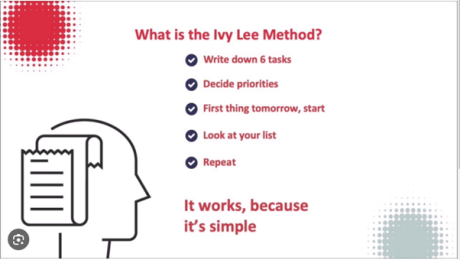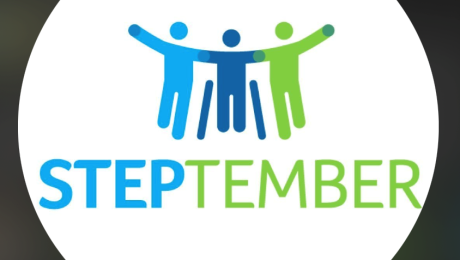So, what is impostor syndrome?
 No one wants to feel like an imposter at work. But the truth is, imposter syndrome is a real thing. If you’ve ever felt like you don’t belong or you don’t deserve your job, know that you’re not alone. So, what is impostor syndrome? Imposter syndrome is a sense of self-doubt related to work accomplishments. You might have feelings of phoniness and think you don’t deserve your job. Oftentimes, imposter syndrome makes you feel like you’re tricking your coworkers into thinking you’re good at your job. Other symptoms include: · Lack of self-confidence at work · Sensitivity of small mistakes · Fear of failing your team · Burnout from working too hard. If any of these feelings ring true, you’re not alone. In fact, according to research nearly two-thirds (62%) of workers worldwide reported experiencing imposter syndrome. All types of people experience imposter syndrome—and not just new hires, either. Team members in more senior positions are actually more likely than average to experience imposter syndrome. Characteristics of impostor syndrome could look like. · Self-doubt in your skills and competence · Crediting external factors—like luck—for your success · Decreased self-confidence · Isolating from team members · Perfectionism · Experiencing overwork and burnout · Setting impossibly high standards for yourself · Low self-esteem · Intense fear of failure Imposter syndrome during the pandemic The unprecedented and unique pandemic situation also caused a rise in imposter syndrome. In fact, 47% of workers worldwide reported feelings of imposter syndrome increasing in 2020 as being isolated from your work team while working from home compounded this issue. 5 types of imposter syndrome 1. The perfectionist The perfectionist is a person whose primary focus is on “how” something is done, instead of the overall outcome. Despite receiving praise, you believe you could have done better. 2. The expert When someone is more concerned about “what” and “how much” they know or can do, they may suffer from an expert mindset. In a scenario where you have a minor lack of knowledge, this extreme expectation of yourself can bring feelings of failure and shame. 3. The natural genius This type of person measures their competence by speed and ease. When you feel like this, you equate not understanding a subject or performing a skill successfully on the first try with failure. 4. The soloist Focusing more on “who” carries out the task, this type of imposter believes they must be the one to do everything on their own. If you fall into this archetype, you may believe that asking for help or needing assistance is a sign of weakness. 5. The superhuman This describes someone who measures their success by “how many” roles they can both juggle and master. With this mindset, you may feel guilty and ashamed when falling short in any role, even while excelling in others. 9 ways to overcome imposter syndrome. If you’re personally struggling with imposter syndrome, there are a lot of actions you can take to reduce those feelings. The most important thing to do is remember you’re not alone—and these feelings aren’t abnormal. When you want to succeed, it’s common to feel like you aren’t doing a good enough job. But with time and hard work, you can overcome imposter syndrome. Here’s how: 1. Focus on the facts Imposter syndrome makes you feel like you aren’t good at your job. But oftentimes, these feelings are based on fear—not reality. The best way to fight imposter syndrome is to separate your feelings from the facts. The Conscious Leadership Group calls this “facts vs. stories.” Facts are observable truths—things a video camera picks up on. Stories are how you interpret those facts. You can’t keep your brain from creating stories, but you can centre yourself around the facts. The next time you’re in a situation that makes you feel like an imposter, refer to the facts vs. stories of the situation. For example, if you felt bad after speaking up in a team meeting, focus on what your team members said. 2. Acknowledge, validate, then let go Your interpretation of an event is a story (rather than the fact) this of course doesn’t mean your feelings are any less valid. Combatting imposter syndrome isn’t about ignoring your emotions. Rather, the best way to fight this feeling is by acknowledging that you’re feeling poorly, validate that it’s okay, and then let those feelings go if they aren’t based on reality. 3. Share how you’re feeling Imposter syndrome is a very isolating feeling. But as we shared above, these feelings are common in the workplace. Nearly two-thirds (62%) of workers worldwide have experienced imposter syndrome. So, the next time you’re feeling this way, try to share those feelings with someone else. There are two advantages to sharing how you’re feeling: Instead of internalising the emotions, recognises them and move on. When you keep your feelings of imposter syndrome a secret, they grow bigger and harder to deal with. Sharing these feelings with someone else is a great way to recognise them on the path towards overcoming imposter syndrome. You might find someone who has also experienced imposter syndrome. Unfortunately, imposter syndrome is a common workplace phenomenon. You might find that the person you confide in has also felt imposter syndrome in the past. This helps you feel like you aren’t so alone in the way you’re feeling. 4. Look for evidence If acknowledging or sharing your feelings isn’t helping, try fighting your feelings with the evidence. Oftentimes, imposter syndrome isn’t based on facts—so focus on the facts to fight these feelings. If you often feel like you aren’t getting your work done on time, try these steps: · Go back over your most recent projects. · Review the work you’ve done to see if these feelings are based in fact. · If they are, you’ve identified something concrete you can work on & improve upon. · If they aren’t, use these facts every time that voice in your brain pipes up to tell you you aren’t good enough. If you don’t have an easy way to review your work, try using a work management tool, like a spread sheet. These tools help you organise your work, look back on past projects, and get set up for success on any future initiatives. 5. Reframe your thoughts There is power in our thoughts. The way we approach the world has the power to shape our reality—in both positive and negative ways. If you often suffer from negative thoughts, start monitoring your mental voice and modifying it where possible. This technique won’t have immediate results, but over time, it helps you approach situations in a more positive light. For example, the next time you make a mistake, try thinking, “That wasn’t my best work, but I’ll do better next time” instead of, “That was awful.” By reframing your mental language, you’re rewiring your brain to be more supportive. 6. Look for a mentor To fight imposter syndrome, try actively improving your hard skills and soft skills. That way, whenever that little voice in your head whispers that you’re not good enough at something, you can whisper back that you’re in the process of getting better so shut up! 😊 A great way to do that is to find a mentor. Look for someone in your company or your field of work who can give you practical advice and support. This might be a senior leader, or a leader at another company that you look up to. 7. Learn from your team members A common symptom of imposter syndrome is comparing yourself to your peers and thinking you’re worse at your job than they are. While comparing yourself is tempting, there’s a lot you can do to reframe these feelings. The next time you feel tempted to compare yourself to your peers, try to take a step back and instead see what you can learn from them. The fact of the matter is, you will have team members who have strengths in certain areas you don’t, and vice versa. That doesn’t make you less worthy—but rather creates an opportunity for your team to learn from one another to grow and succeed in your roles. 8. Anticipate imposter syndrome to reduce its effects Over time, you might notice that you always experience imposter syndrome when a specific thing happens. If that’s the case, prepare in advance of that situation so you can combat the effects. For example, let’s say you typically get nervous while filling out your self-review during your team’s performance cycle. If that level of reflection makes you uncomfortable, try keeping a list of things you accomplish over the course of the quarter or year in your collaboration software. That way, when the performance review cycle rolls around, you already have your self-review written, without even worrying about it. 9. Toot your own horn Sometimes, the best way to fight imposter syndrome is to face it head on. The next time you feel like you did something well, celebrate it! If you’re comfortable, share your accomplishment with your team. You aren’t limited to doing this when you do a good job, either. Try creating a list of the qualities and skills you possess. These can be specific to your role—like being a great salesperson—or more general to who you are, like always being there for your team members. |
- Published in News from the PP Team
What is the Ivy Lee Method?
Want to be more productive at work? Try the Ivy Lee Method.
If you have a role with competing tasks (and let’s face it, who doesn’t these days) and you might go home at the end of the day and think to yourself “I achieved nothing” and the days might feel very long and that you’re going in circles.
It might be time to consider how you’re working, and that might mean switching it up so you can get the most out of each day and go home feeling stronger and that you have things under a bit more control than previous days.
According to a recent study there is still a good percentage of employees suffering from “societal pandemic burnout” (say that five times really, fast) meaning we had met our limits mentally, emotionally, and physically. You know, tired but not normal tired.
I give you The Ivy Lee Method!
The story goes that in 1918, a man named Charles M.Schwab was known to be one of the most successful business owners in the world. He owned a steel corporation and wanted to further innovate his workplace.
To increase productivity, he enlisted the help of a productivity consultant, Ivy Lee to advise him in this. Quite simply it is an easy routine to effectively help with “maximising productivity” and who doesn’t need some of that.
How it works!
What you do, is at the start of your working week and day, you write down 6 of the most critical things you need to accomplish. That’s the rule, no more than six. Write them in order of importance and then simply start working on them. Start on the first task, and do not attempt the next task until it is completed in its entirety.
Anything on that list that’s unfinished by the end of the day (which is inevitable and nothing to beat yourself up about) just moves over to the next day.
Now if you’re “Super-Fly” and storm through those six items halfway through the day, then (you probably don’t need this hack anyway 😊) you make another list of six and get cracking.
Basically, that list is the last thing you do before finishing work for the day, and the first thing you look at before you begin.
It sounds simple, right? But does it work?
For a productivity hack to work, it must be very simple and intuitive. The beauty of the Ivy Lee method is that it allows for those silly little tasks that will inevitably come up and throw your entire day out. It means you can’t vastly overestimate how much you can get done in a day, and it provides a clear focus on what tasks are achievable.
The method removes the friction of starting as the biggest barrier to getting things done can sometimes be starting them. Most of us know the feeling of deciding to work on one task, then finding it too difficult, so starting another, and then wondering if you should be doing something else instead, allowing that process of decision making to take up the whole day.
The method also means you focus on one thing at a time. No multi-tasking, which can often mean dividing your attention 15 different ways and doing a bunch of jobs poorly.
- Published in News from the PP Team
Temp of the Month Award
We had two wonderful temps of the month for September. Congratulations to Simone (pictured) and Melissa who is so dedicated and hardworking and has an amazing eye for detail as well as genuine compassion and care for our amazing fundraisers! Well done. Simone we are so pleased you are enjoying the assignment and team of people you’re working with; the company said you have been fantastic. Always positive, very professional, and proactive. Thanks ladies and congratulations again, a gift pack and certificate are coming your way. #tempwork #award #congratulations #staffaward #tempofthemonth #peninsulapersonnel
- Published in News from the PP Team
Temp of the Month Award
We are thrilled to announce x2 Temp of the Month Awards for August. Join us in congratulating Kerrie & Becky for their outstanding contributions! Below is feedback from their managers.
Working with Kerrie has been an absolute pleasure! She is highly motivated, dependable and always willing to lend a helping hand with whatever is needed. With Kerrie adding it is great to be back working another campaign, I have picked up the systems easily, good team and Laura is lovely!
Becky deserves to be nominated as temp of the month, she is an absolute JET, a great addition to the team and is managing her responsibilities really well. So much so that we would like to continue with her in this role for at least another 3 months.
One of Becky’s tasks was to organise our national conference and our Birthday celebration, both events were a total success. They involved lots of coordination, organisation with vendors, presentation management, hotel liaison, flight management, internal stakeholder management – the list goes on! Becky managed every aspect of both events with a sense of calm, and nothing was to hard a task. She took on all responsibilities and problem solved the whole way to achieve the best outcome. I feel lucky to have such a dedicated ‘temp’ team member in our business!
- Published in News from the PP Team
Can Australian employers stop you working from home?
Here’s what the law says.
In Australia, close to 90% of employers have implemented mandatory in-office days, according to a survey of 300 hiring managers commissioned by recruitment agency Robert Half.
The survey shows 19% insisting on five days a week, 28% on four days, and 26% on three days. Almost a third of respondents reported at least one employee quitting in response.
Particularly for parents and younger workers, working from home is not something they will readily give up.
Which raises the question: can an employer, having first directed you to work from home, now turn around and mandate you don’t?
The short answer is yes, they can in many case….though some people have a stronger case to argue for flexible work, and correct procedures must be followed.
Is it a “lawful and reasonable” direction?
Whether you are employed permanently, as a casual or on a short-term contract, you are required to follow “lawful and reasonable “directions from your employer.
Even if this isn’t stated specifically anywhere, Australian courts have ruled this requirement is “implied” in every employment contract.
A direction to return to the workplace will be lawful and reasonable except in extreme cases-for example, where it is contrary to a government directive or another law. If you can perform your role at home and have a legitimate reason to do so-such as an underlying health issue-you may have grounds to argue a directive to return to the office is not reasonable.
But a detailed and considered plan requiring employees to return to the workplace safely will be lawful and reasonable. Failing to comply with this direction may be a valid reason for disciplinary action, including dismissal.
Is consultation required?
If your work is covered by an award or enterprise agreement, you can collectively assert your right to be consulted, on the basis that a return-to-work order constitutes a “major workplace change”.
The Fair Work Ombudsman says consultation requires giving notice, discussing the proposed changes, providing written information, and giving “prompt consideration” to any matters raised by employees and their representatives.
Even though the employer ultimately doesn’t need consent, the consultation still needs to be genuine and properly consider employees views, following the processes set down in the applicable award or agreement.
What about flexible work arrangements?
If your award, enterprise agreement or employment contract contains “workplace flexibility” provisions, you may have rights to work from home or to make a request.
In addition, the national employment standards under the Fair Work Act give employees the right to request “flexible work arrangements” if they’ve been with the employer for at least 12 months, and:
- Are a parent or carer of a child of school age or younger
- A carer
- Have a disability.
- Are pregnant.
- Are experiencing family or domestic violence or caring or supporting an immediate family or household member experiencing family or domestic violence.
Does that apply to casual work?
Casual employees have similar rights if they have been working regularly and systematically for at least 12 months and have a reasonable expectation of continued work on the same basis.
Reasonable adjustments for employees
The right of review for flexible work arrangement requests, though limited to certain employee categories, could well become a hotly contested area.
If an organisation mandates their workers return to the workplace, the employer needs to provide clear guidelines. If an employee seeks a flexible work arrangement, the employer needs to actively engage with them and give them opportunities to provide supporting evidence regarding any special circumstances.
That way, they can accommodate employees-so far as is practicable-and if required, make reasonable adjustments. If you’re an employee wanting to request flexible working arrangements, such as working from home, or an employer wondering how to handle such requests, you can read more at the Fair Work Commission.
- Published in News from the PP Team
I’m moving for inclusion
STEPtember merch arrived today, we will wear the t-shirt with pride. STEPtember is a fun and inclusive virtual challenge that encourages you to move your way to 10,000 steps a day – whenever, wherever, and however you like – from 1-30 September. Every 20 hours, an Australian child is diagnosed with cerebral palsy. To donate visit this page https://www.steptember.org.au/fundraiser-search #cerebralpalsy #STEPtember #virtualchallenge #donate #charity #workfun #tempwork #recruitment #peninsulapersonnel
- Published in News from the PP Team
STEPtember time
Its nearly STEPtember time, we are proud to be involved in this great campaign year after year, join a community of over 124,000 Australians STEPping it up to help change the lives of people with cerebral palsy. STEPtember is a fun and inclusive virtual challenge that encourages you to STEP UP – whenever, wherever, and however you like – from 1-30 September. Visit https://www.steptember.org.au/ for more information and to sign up. #cerebralpalsy #steptember #fundraising #charity #workfriends #peninsulapersonnel #recruitment
- Published in News from the PP Team
Temp vs. Perm
Hello and Happy Friday, with the start of the new financial year we have seen a spike in temp jobs along with hearing many stories of recent redundancies especially within large organisations. With that in mind there are many different viewpoints on whether or not accepting a temp job is a good idea. Some individuals think of a temporary position as a terrible option, while others think of it as the most ideal one and a great alternative to, well, unemployment. A permanent job, on the other hand, can provide us with security, and maybe too much comfort.
The only way to truly understand the benefits and drawbacks of temporary and permanent jobs is to have a clear picture of both – and that’s what I am going to do!
Below, I will break down the PROS and CONS of each job arrangement, with bullet points to be easy for everyone to read and understand.
TEMPORARY WORK
Temporary work refers to an employment situation where the working arrangement is limited to a certain period of time, which is based in the needs of the employer.
PROS
- Employers can sometimes be more flexible with temp workers in terms of their working hours.
- Gives you the flexibility to jump from one position to another and experience different company cultures and meet new professionals.
- Temporary jobs are ideal for filling in the gaps between long-term positions. Not only will you be able to earn money while looking for your ideal job.
- Can sometimes be more rewarding in terms of salary than a permanent role.
- Temp positions tend to lead to permanent contract.
- Gives you the ability to test the ”waters” before you apply for a permanent role with that employer.
CONS
- If your coworkers suspect you won’t be working there for long, they may be less inclined to form a bond with you – equally, you may feel the same.
- You may be excluded from a lot of business/team related meetings or social gatherings. You likely won’t be eligible for the employer’s benefits and perks.
- The majority of temporary assignments are designed to assist businesses with immediate, short-term needs — you might be asked to leave after your contract agreed time period.
- Higher pressure as you have only a specific amount of time to deliver a service and results.
PERMANENT WORK
Permanent work means that there isn’t a predetermined end date to an employees contract.
PROS
- Permanent jobs frequently come with perks and benefits that are sometimes not accessible in temporary positions.
- In comparison to temp work, permanent positions can provide a better financial security and peace of mind.
- With a permanent job, you can establish a foundation for a successful and fruitful career with a single company. If you do well in a permanent position, you can advance up the corporate ladder—thereby developing your career and earn more money.
CONS
- Permanent work may become monotonous.
- It may make you feel trapped in a routine, especially if you perform the same tasks on a daily basis.
- Permanent employment is highly restricting, especially for people who desire to continue exploring other fields, working in other positions, and obtaining additional knowledge and skills.
- People that are into permanent work are more likely to become too comfortable and never take the next step in their career or professional development.
When it comes to temp vs. perm hire, the truth is that both have their own set of advantages and disadvantages. Temp employment, as you can see, provides a lot of benefits, but they may not be suited for everyone. It’s up to you and your LIFESTYLE to decide which one is most ideal for you.
- Published in News from the PP Team
Temp of the Month
Elaine is a repeat offender having won this award before, last one back in June 2021. Elaine is someone who is repeatedly requested back by many of our clients, and this has been the case for a number of years now. Elaine simply gets on with her work and can easily work autonomously & with very little training or direction. I wish I had lots more “Elaines” working as part of the PP temp team, her work ethic is second to none, this award is well deserved, thank you Elaine! The Clients always have great feedback. #recruiter #tempofthemonth #northernbeaches #awards #congratulations
- Published in News from the PP Team
Temp of the Month Award
Sara is new to the team but has hit the ground running with wonderful feedback from our clients, one of them say “We have had many temps working for us over the last few weeks and Sara was a standout, she was a pleasure to work with and showed a keen interest, she was kind and helpful, picked up the assembly work easily, adapted to the work in 2 different warehouses and environments and to different staff everyday she was on site’’ Congratulations’ thank you and well done Sara for being a standout and representing PP so well, she will receive a gift pack and certificate of appreciation. #tempofthemonth #tempwork #warehousework #assemblywork #staffaward #recruitment #resume #casualwork
- Published in News from the PP Team










